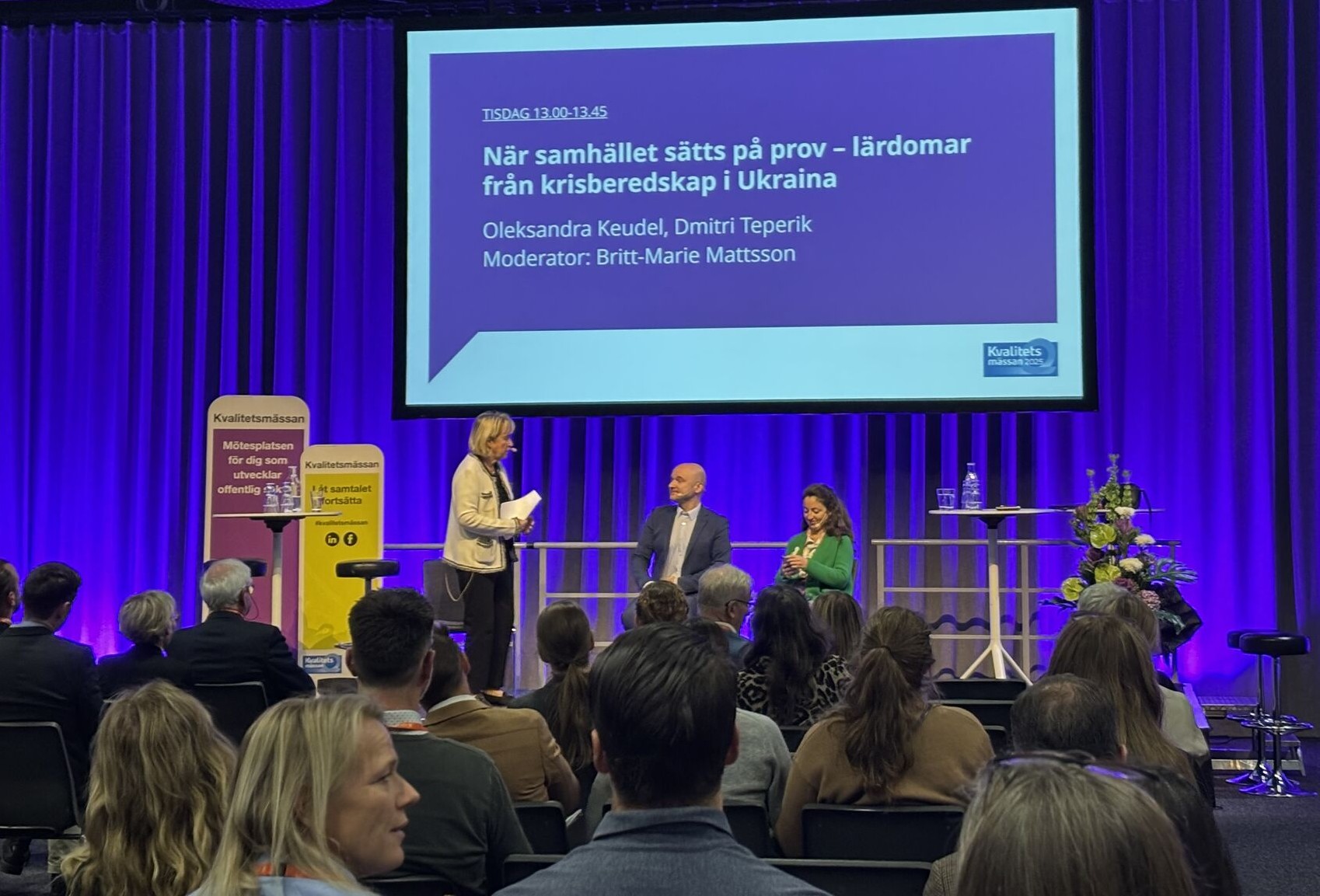Resilient Ukraine at the Swedish Kvalitetsmässan Conference: Lessons from Ukraine’s Crisis Preparedness

During the panel discussion “When Society Is Put to the Test – Lessons from Crisis Preparedness in Ukraine” at the Kvalitetsmässan conference (Gothenburg, Sweden), Dmitri Teperik, Director-General of Resilient Ukraine, shared practical insights on crisis-time management.
In his presentation, he outlined three groups of challenges faced by institutions and communities during periods of crisis:
🔹 Resources: time, materials and people.
🔹 Expectations of leadership and institutions.
🔹 Change: adapting, innovating and reinventing protocols under pressure.
The speaker emphasized that resilience is a systemic capacity, built through:
- decentralised preparedness;
- empowered local leadership;
- a strong civil society that acts as a bridge between authorities and citizens, enabling two-way communication, public trust, and agile coordination.
In addition, as highlighted by the panelist, the cooperation model implemented by Resilient Ukraine is based on the following principles:
- Resilience and recovery must unfold simultaneously: rebuilding material assets as well as sociopsychological aspects of the community sustains confidence and agency.
- Civil society is an active security actor, not just an advocacy voice.
- Leadership under uncertainty works best when it is trust-based, empathetic and locally empowered.
Dmitri Teperik stressed that resilience governance should be based on decentralised preparedness, meaning functional local networks, participatory recovery, and the measurement of social capital, as well as critical infrastructure.
Reference:
Kvalitetsmässan is a biannual conference dedicated to quality development in the public sector. Since its inception in 1989, it has established itself as Sweden’s leading platform for exchanging ideas and experiences that contribute to improving public sector.
